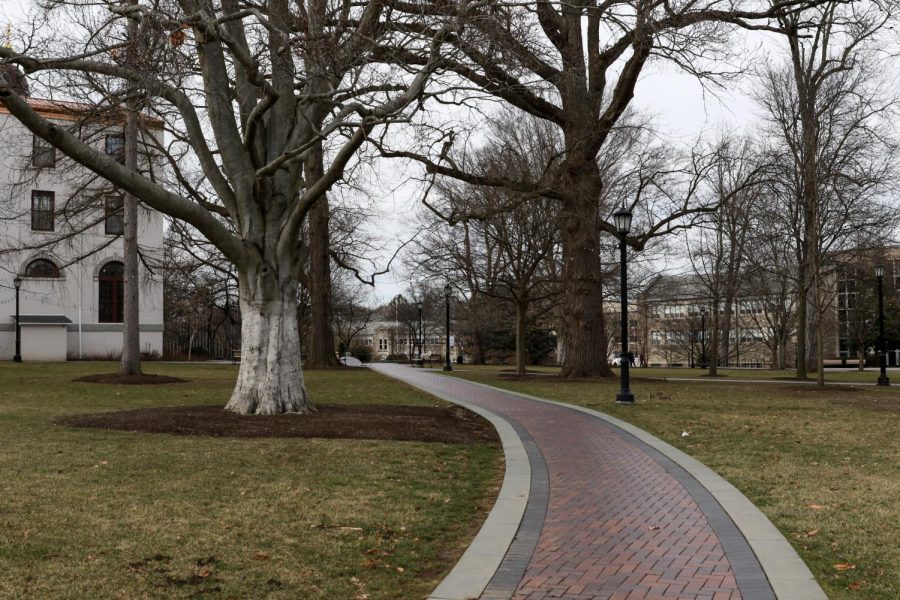University Reacts to Supreme Court Ruling on Affirmative Action
Ryan Sarbello/Villanovan Photography
The United States Supreme Court’s decision to overturn Affirmative Action overturns decades of precedent. In a statement, the University said it plans on staying true to its foundation of diversity.
July 1, 2023
Affirmative Action has set the precedent for college admissions for decades. It was initiated by the administration of President Lyndon B. Johnson in 1964 during the Civil Rights Movement and was a part of the Civil Rights Act of 1964. Initially, the legislation was for improving opportunities for Black Americans due to decades of slavery followed by discrimination against Black people in the United States. Eventually, the legislation was expanded to include women, Native Americans and Hispanics. However, Affirmative Action includes legislation that has broadly promoted the presence of minorities and marginalized groups in higher education for decades.
On Thursday, June 29, 2023, that precedent was overturned.
The United States Supreme Court, one day away from the end of its current session, ruled in the favor of Students for Fair Admissions in the organization’s suit against Harvard and University of North Carolina. This ruling effectively overturns years of precedent in college admissions, eliminating consideration of race as a factor in college admissions.
According to its website, Students for Fair Admissions argues that, “A student’s race and ethnicity should not be factors that either harm or help that student to gain admission to a competitive university.” The Supreme Court ruled 6-3 in favor of that statement.
Even today, with the presence of Affirmative Action and race-based considerations for higher education admissions, American colleges and universities are overwhelmingly white. Besides Historically Black Colleges and Universities, or HBCUs, American higher education is dominated by white students. Villanova, for example, is considered a PWI, or Predominantly White Institution.
According to the University’s Office of Diversity, Equity, and Inclusion, as of Fall 2022, Villanova’s undergraduate student population was 68.8% white. As for minority students, the breakdown is 11.1% Hispanic/Latino, 5.9% Black/African American, 8.2% Asian, and 4% two-or-more races. According to that data, for all the University’s undergraduate students, there are only 420 Black students. Even with Affirmative Action, the number of students of color at our own institution is startlingly low.
In the wake of the controversial decision, members of the University community have had many reactions and comments to share.
Affirmative Action was legislation initially implemented to provide Black Americans with a fair opportunity at attending competitive universities. The University’s Black Student Union (BSU) issued a statement to its members and the wider community.
“This decision negates our nation’s progress in creating a change in which underrepresented students are able to have more equitable and inclusive opportunities at collegiate institutions,” the statement said. “With this unfortunate decision, the work of many people who have tirelessly advocated and fought for this change will be lost to a system embedded in many negative things, such as: bigotry, racism, and classism.”
In the statement, the BSU Executive Board also committed itself to continuing to create a supportive and safe environment on campus for its members, while also urging the University to do the same.
“Our organization will continue to work to promote a diverse, equitable, and inclusive community here at Villanova University,” the Board said. “It is our hope and request that University Administration will also commit to doing the same for its students.”
At the end of the statement, there were several resources included, such as the United Negro College Fund, for students to look into to support students of color in higher education. The list of resources can also be found on the BSU Instagram, @novabsu.
Shortly after the BSU issued its statement, the community received an email from the Office of the President regarding the news. Like many other higher education institutions, the University is unsure of where this decision leaves its admissions process. Guidelines or rules are not laid out, so the email reassured the community that research would be done to ensure the admissions process continues to be inclusive.
“In light of today’s Supreme Court decision, Villanova, like all colleges and universities across the country, will carefully review the details of the ruling and determine how it may specifically impact our admissions processes and programs,” said University President Rev. Peter M. Donohue, OSA, Ph.D. “We will continue to employ a holistic approach to decision-making that considers a variety of factors, including academic and extracurricular achievements, as well as other factors related to student background and experiences. Since 1842, the Villanova community has been enriched and strengthened by individuals of diverse backgrounds, experiences and beliefs, and we will stay true to that foundation—now and in the future.”
Several other offices on campus issued their own statements as well. Due to the low number of low-income, first generation, and students of color that attend the University, the Center for Access, Success, and Achievement (CASA) is committed to providing resources for students that fit into those categories. According to its website, CASA’s goal is, “to maintain successful retention by providing students with a sense of belonging in a nurturing environment, opportunities for self-realization and personal development, and holding them accountable for working to the best of their abilities.”
Linda Coleman, the Director of CASA, issued a statement on behalf of the CASA office.
“The Supreme Court’s decision today abolishing affirmative action is the ultimate denial of every student and their parents, who strive to attain a decent education,” Coleman said. “While limiting the opportunities of the black and brown student to compete educationally, you also deprive all the rest of the nation’s people of the opportunity of the rich experience of true human understanding and diversity of thought that can transform thinking and relationships. Our nation will ultimately be the poorer for it.”
Villanova’s Student Government Association (SGA) prepared a statement as well. The statement, written by SGA President Thomas Dessoye, Vice President Dean Millard and Vice President of Diversity, Equity, and Inclusion Kenza Idrissi wrote of SGA’s disappointment with the Supreme Court’s decision.
“As a student organization that is relentlessly committed to the values of diversity, equity, and inclusion and recognizes the power of a diverse student body, we are deeply disappointed with the Supreme Court ruling Affirmative Action as unconstitutional,” they said. “We believe this ruling does not represent the contributions generations of students of color have brought to universities and colleges across the United States. Moreover, we recognize the long history of oppressive, discriminatory, and unjust barriers to education, amongst other social justice issues, that has disproportionately impacted communities of color. The Student Government Association will work diligently to advocate for greater diversity, equity, and inclusion at Villanova University.”
Besides organizations, students themselves have also been talking about and reacting to the news. Lindsay Redditt, a rising senior, shared her sentiments with The Villanovan. Redditt is a Black student who feels strongly about the Supreme Court’s ruling.
“As a political science major, we are taught that they are nonpartisan and are supposed to be unbiased,” Redditt said. “However, the voting history says otherwise. The justices seem to vote according to party lines, based on appointments and not by the law or for what’s right. The conservative majority continuously takes this country backwards, so while the decision was disappointing it was not surprising. This decision will upend work done over the years to make higher education more accessible to students of color, especially low-income students of color. It gave them a chance that their lack of resources took away.”
As the aftershocks of the ruling ripple through the academic world, the University and its students will learn to adapt with the rest of the nation.



